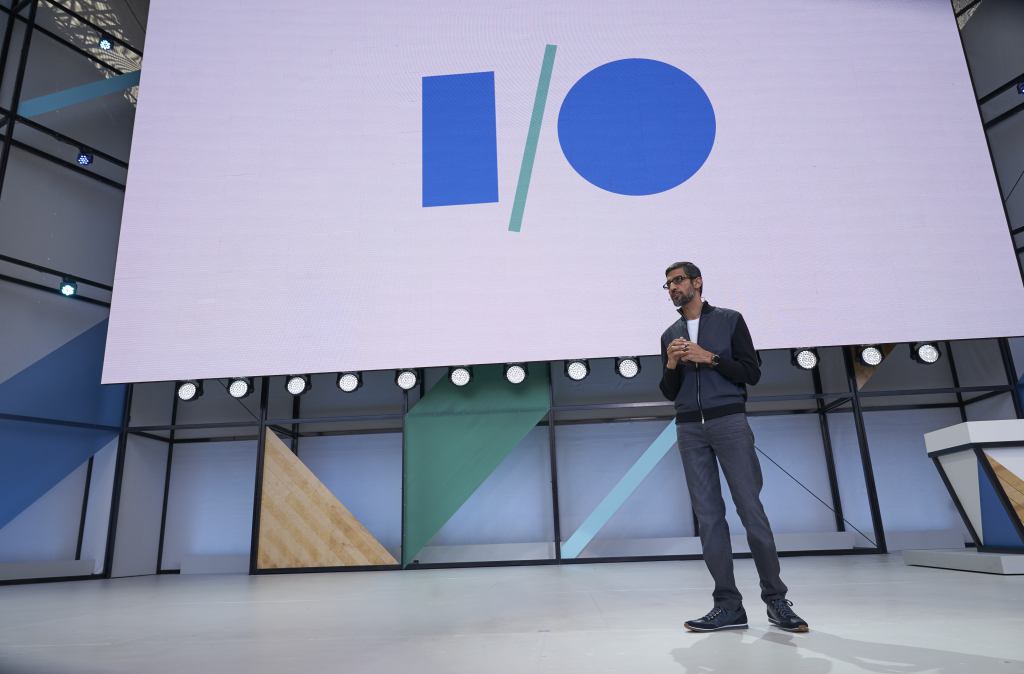In the AI wars, Microsoft now has the clearer vision
- by 7wData

A week ago, Microsoft held its Build developer conference in its backyard in Seattle. This week, Google did the same in an amphitheater right next to its Mountain View campus. While Microsoft’s event felt like it embodied the resurgence of the company under the leadership of Satya Nadella, Google I/O — and especially its various, somewhat scattershot keynotes — fell flat this year.
The two companies have long been rivals, of course, but now — maybe more than ever — they are on a collision course that has them compete in cloud computing, machine learning and artificial intelligence, productivity applications and virtual and augmented reality.
It’s fascinating to compare Pichai’s and Nadella’s keynote segments. Both opened their respective shows. But while Pichai used his time mostly to announce new stats and a new product or two, Nadella instead used his time on stage to talk about the opportunities and risks of the inevitable march of technological progress that went way beyond saying that his company is now ‘AI first.’ “Let us use technology to bring more empowerment to more people,” Nadella said of one of the core principles of what he wants his company to focus on. “When we have these amazing advances in computer vision, or speech, or text understanding — let us use that to bring more people to use technology and to participate economically in our society.”
And while Google mostly celebrated itself during its main I/O keynote, Nadella spent a good chunk of time during his segment on celebrating and empowering developers in a way that felt very genuine.
Having spent a few days at both events, I couldn’t help coming home thinking that it may be Microsoft that has the more complete vision for this AI-first world we’ll soon live in — and if Google has it, it didn’t do a good job articulating it at I/O this year.
The area where this rivalry is most obvious (outside of the core cloud computing services) is in machine learning. Google CEO Sundar Pichai noted during his keynote segment that the company is moving from being a mobile first company to an AI first one. Microsoft is essentially on the same path, even as its CEO Satya Nadella phrased it differently. Neither company really mentioned the other during its keynote events, but the parallels here are pretty clear.
The two marquee products both companies used to show off their AI prowess were surprisingly similar. For Microsoft, that was Story Remix, a very nifty app that automatically makes interesting home videos our of your photos and videos. For Google, it was Google Photos, which is using its machine learning tech to help you share your best photos more easily. Remix is a far more fun and interesting product, which garnered massive applause from the developer audience at Build, while the new Google Photos features sound useful enough, but aren’t going to blow people away. There was also nothing developers could learn from that segment.
Google Lens, which can identify useful information in images, looks like it could be really useful, too (though we won’t really know until we get our hands on it at some point in the future), but it’s worth noting that Google’s presentation wasn’t very clear here and that a number of people I talked to after the event told me that they had a hard time figuring out whether this was a developer tool, a built-in feature for the Google Assistant or a standalone app. That’s never a good sign.
Google also still still offers Google Goggles, an app that allowed you to identify objects around you for a few years now. I think Google forgot that even existed, as it’s sometimes prone to do.
At the core of the two companies’ AI efforts for consumers are Microsoft Cortana and the Google Assistant. This is one area where Google remains clearly ahead of Microsoft, simply because it offers more hardware surfaces for accessing it and because it knows more about the user (and the rest of the world).
[Social9_Share class=”s9-widget-wrapper”]
Upcoming Events
From Text to Value: Pairing Text Analytics and Generative AI
21 May 2024
5 PM CET – 6 PM CET
Read More


